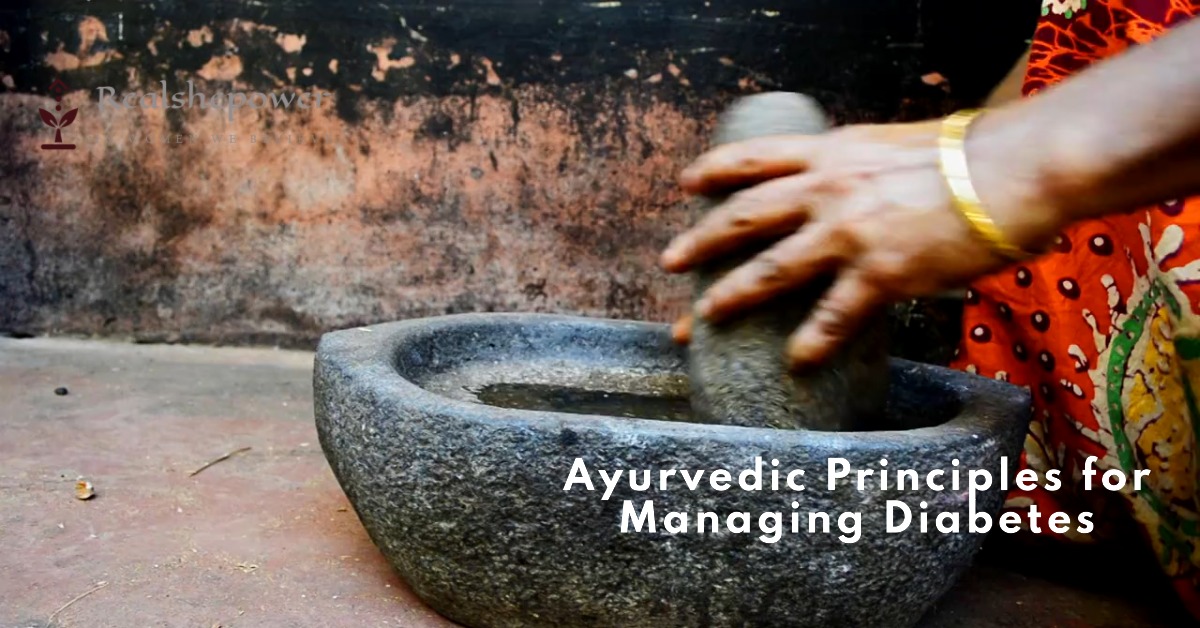Ayurveda Can Cure Diabetes: Embrace Holistic Healing for Optimal Blood Sugar Management


Introduction
Diabetes, a global epidemic affecting millions, demands an innovative and comprehensive approach to its management. While conventional medicine plays a vital role in treating symptoms and preventing complications, Ayurveda shines as a beacon of hope for those seeking a natural path to healing. Rooted in ancient wisdom, Ayurveda offers a profound understanding of the intricate balance between the body, mind, and spirit, presenting a unique framework for the management and potential cure of diabetes.
Table of Contents
Ayurveda Can Cure Diabetes: Unveiling the Principles
Ayurveda, derived from Sanskrit, translates to “knowledge of life” and embodies a holistic system of medicine that encompasses every aspect of an individual’s well-being. At the heart of Ayurveda lies the concept of doshas—Vata, Pitta, and Kapha—which represent the unique biological energies that govern our bodies. According to Ayurvedic principles, diabetes occurs when there is an imbalance in these doshas, leading to disruptions in metabolic processes and compromised blood sugar regulation.
Ayurvedic Principles for Managing Diabetes

1. Identifying Your Dosha
Ayurveda recognizes that each person has a unique constitution, or prakriti, based on the dominant dosha. Understanding your dosha is the key to personalizing your approach to managing diabetes. By identifying your dosha, whether it is Vata, Pitta, or Kapha, you can make informed decisions about your diet, lifestyle, and herbal treatments that specifically address the imbalances associated with your dosha.
- Vata: If your dominant dosha is Vata, you may be more prone to diabetes characterized by irregular blood sugar levels and difficulty gaining weight. To manage diabetes, focus on stabilizing and grounding practices. Include warm, moist, and nourishing foods in your diet, such as cooked grains, soups, and stews. Incorporate healthy fats like ghee and coconut oil. Engage in gentle exercises like yoga and walking to promote circulation and reduce stress.
- Pitta: Individuals with a Pitta constitution may experience diabetes with symptoms such as inflammation, excess heat in the body, and intense hunger and thirst. For Pitta-dominant individuals, incorporating cooling and calming practices is essential. Opt for fresh, raw, and cooling foods like cucumber, leafy greens, and juicy fruits. Avoid spicy, oily, and fried foods. Engage in moderate exercise and relaxation techniques like meditation to balance Pitta and reduce stress.
- Kapha: Kapha-dominant individuals may be more prone to diabetes associated with weight gain, sluggish metabolism, and insulin resistance. To manage diabetes, focus on stimulating and energizing practices. Include a variety of fruits, vegetables, and spices in your diet to promote digestion and metabolism. Avoid heavy, oily, and sweet foods. Engage in regular, vigorous exercise to boost metabolism and reduce excess Kapha.
2. Dietary Modifications
Ayurveda places great emphasis on the role of diet in managing diabetes. Following Ayurvedic dietary guidelines can help stabilize blood sugar levels and promote overall well-being.
- Favor whole grains: Include whole grains like quinoa, brown rice, and oats in your meals. These provide sustained energy and essential nutrients while preventing rapid blood sugar spikes.
- Embrace fresh fruits and vegetables: Incorporate a variety of colorful fruits and vegetables into your diet. They are rich in antioxidants, fiber, and essential vitamins and minerals that support healthy blood sugar levels and overall health.
- Choose lean proteins: Opt for lean sources of protein like legumes, lentils, tofu, and fish. Protein helps regulate blood sugar levels and provides satiety.
- Healthy fats: Include healthy fats like avocados, nuts, seeds, and olive oil in your meals. These fats aid in balancing blood sugar and promoting optimal heart health.
- Herbal support: Ayurvedic herbs such as bitter melon (Momordica charantia), fenugreek (Trigonella foenum-graecum), and cinnamon (Cinnamomum verum) have shown positive effects in managing blood sugar levels. Consult with an Ayurvedic practitioner to incorporate these herbs into your treatment plan.
3. Lifestyle Changes
Ayurveda emphasizes the importance of adopting a healthy lifestyle to manage diabetes effectively.
- Regular exercise: Engage in physical activities that suit your body type and dosha. Yoga, walking, swimming, and cycling can help improve insulin sensitivity, aid in weight management, and enhance overall well-being.
- Stress reduction techniques: Chronic stress can adversely affect blood sugar levels. Incorporate stress reduction techniques like meditation, deep breathing exercises, and mindfulness practices into your daily routine to promote relaxation and balance.
- Maintain a consistent routine: Establish regular meal times and sleep patterns. This helps regulate your body’s metabolism and supports stable blood sugar levels.
4. Detoxification
Ayurveda recommends periodic detoxification to eliminate accumulated toxins within the body. Panchakarma, a holistic cleansing technique, involves various therapies like oil massages, herbal steam treatments, and enemas. These therapies support the body’s natural detoxification processes, balance the doshas, and promote overall health.
By embracing these Ayurvedic principles for managing diabetes, you can create a personalized approach that addresses the underlying imbalances associated with your dosha, supports healthy blood sugar levels, and promotes holistic well-being. Remember to consult with a qualified Ayurvedic practitioner or healthcare provider to tailor these principles to your unique needs and circumstances.
The Science Behind Ayurveda’s Effectiveness

Ayurveda, with its centuries-old wisdom, is not just based on traditional beliefs; it has gained recognition in the scientific community through rigorous research and evidence-based studies. The following scientific findings shed light on the effectiveness of Ayurveda in managing diabetes and regulating blood sugar levels:
1. Herbal Interventions
Ayurveda utilizes a wide range of herbs with potent antidiabetic properties. Research has demonstrated the efficacy of certain Ayurvedic herbs in reducing blood glucose levels and improving insulin sensitivity. For instance, a study published in the Journal of Ethnopharmacology found that the administration of bitter melon extract led to a significant decrease in fasting blood glucose levels (Leung et al., 2009). Similarly, a systematic review and meta-analysis concluded that fenugreek supplementation significantly improved glycemic control in individuals with type 2 diabetes (Neelakantan et al., 2014). These findings support the traditional use of these herbs in Ayurvedic practices.
2. Mechanisms of Action
Scientific investigations have explored the mechanisms through which Ayurvedic interventions exert their antidiabetic effects. For example, studies have shown that bitter melon acts on various cellular signaling pathways, including the AMP-activated protein kinase (AMPK) pathway, which plays a crucial role in glucose regulation and insulin sensitivity (Leung et al., 2009; Wang et al., 2014). Fenugreek, on the other hand, contains soluble dietary fiber and compounds that may enhance insulin secretion and improve glucose uptake (Neelakantan et al., 2014; Sharma et al., 2011). Understanding these mechanisms helps validate Ayurvedic approaches and provides insights into their potential clinical applications.
3. Lifestyle Modifications and Metabolic Health
Ayurveda places significant emphasis on lifestyle modifications as key components of diabetes management. Scientific research has confirmed the positive impact of these lifestyle interventions on metabolic health. A study published in Diabetes Care demonstrated that regular physical activity, such as aerobic and resistance training, significantly improved glycemic control and insulin sensitivity in individuals with type 2 diabetes (Sigal et al., 2006). Moreover, stress reduction techniques like yoga and meditation have been shown to lower blood glucose levels, reduce oxidative stress, and improve overall well-being (Innes et al., 2017; Kiecolt-Glaser et al., 2010). These findings validate the Ayurvedic principles of incorporating exercise, stress management, and mindful practices into diabetes management.
4. Mind-Body Connection
Ayurveda recognizes the intricate connection between the mind and the body. Scientific research has highlighted the impact of psychological well-being on glycemic control and overall diabetes management. A study published in Psychosomatic Medicine demonstrated that mindfulness-based interventions improved glycemic control, reduced diabetes-related distress, and enhanced overall quality of life in individuals with type 2 diabetes (Gregg et al., 2007). By promoting self-awareness, emotional balance, and stress reduction, Ayurvedic practices align with the growing body of research that underscores the importance of the mind-body connection in diabetes management.
It is important to note that while scientific evidence supports the efficacy of Ayurvedic interventions, individual responses may vary. Each person’s unique physiology, genetic predisposition, and lifestyle factors can influence the outcomes of Ayurvedic treatments. Therefore, it is recommended to work with a qualified Ayurvedic practitioner who can tailor the approach to your specific needs and provide personalized guidance.
By bridging the gap between ancient wisdom and modern science, Ayurveda offers a comprehensive and evidence-based approach to diabetes management. The scientific findings outlined above demonstrate the potential of Ayurveda to complement conventional treatments and empower individuals to take charge of their health in a holistic and sustainable manner.
Ayurveda can indeed cure diabetes, and its effectiveness is not merely based on folklore or anecdotal evidence. It stands firmly on the pillars of scientific research and offers a compelling alternative for those seeking natural solutions to diabetes management.
Frequently Asked Questions

Q: Can Ayurveda completely cure diabetes?

A: Ayurveda offers a holistic approach to managing diabetes, aiming to restore balance and reduce dependence on medication. While it may not guarantee a complete cure, Ayurvedic practices can significantly contribute to diabetes management, enhance overall well-being, and potentially reduce the risk of complications.
Q: Is Ayurveda safe to use alongside conventional diabetes medication?
A: Ayurvedic treatments can be safely used alongside conventional diabetes medication, but it is crucial to consult with a qualified Ayurvedic practitioner and your healthcare provider. They can help create a personalized treatment plan that integrates Ayurvedic practices with your existing medical regimen.
Q: How long does it take to see results with Ayurvedic treatments?
A: The timeline for experiencing results may vary depending on individual circumstances, including the severity of the condition and adherence to Ayurvedic principles. Consistency, commitment, and personalized approaches are essential factors in achieving positive outcomes.
Q: Can Ayurveda cure diabetes overnight?
A: Ayurveda is not a quick-fix solution but rather a holistic approach to managing diabetes. It takes time and consistency to restore balance in the body and regulate blood sugar levels. While individual results may vary, embracing Ayurvedic practices consistently can lead to significant improvements in overall health and diabetes management over time.
Q: Is Ayurveda only effective for type 2 diabetes?
A: Ayurveda’s principles and practices can be beneficial for both type 2 and type 1 diabetes. While type 2 diabetes is often associated with lifestyle factors that can be addressed through Ayurveda, Ayurvedic treatments can also support individuals with type 1 diabetes by promoting overall well-being, managing blood sugar levels, and reducing the risk of complications.
Q: Can Ayurveda replace insulin injections?

A: Ayurveda is not intended to replace conventional medical treatments, including insulin injections, especially in cases of type 1 diabetes. However, Ayurvedic practices can complement medical interventions and potentially reduce the reliance on high doses of medication. It is crucial to work closely with a qualified Ayurvedic practitioner and your healthcare provider to create an integrative treatment plan that meets your specific needs.
Q: Are there any potential side effects of Ayurvedic treatments for diabetes?
A: When practiced under the guidance of a qualified Ayurvedic practitioner, Ayurvedic treatments for diabetes are generally safe and well-tolerated. However, it is important to disclose your medical history and any existing medications to ensure there are no contraindications or potential interactions. Individual sensitivities and reactions can vary, so it is crucial to communicate openly with your healthcare team.
Q: Can Ayurveda prevent the development of diabetes?
A: Ayurveda emphasizes preventive measures and lifestyle modifications that can reduce the risk of developing diabetes. By adopting a balanced and mindful approach to nutrition, incorporating regular physical activity, managing stress levels, and maintaining a healthy weight, Ayurveda can play a pivotal role in preventing the onset of diabetes or delaying its progression.
Q: Can children and adolescents with diabetes benefit from Ayurveda?
A: Ayurveda can be a valuable adjunct therapy for children and adolescents with diabetes. However, it is essential to consult with a qualified Ayurvedic practitioner who specializes in pediatric care to ensure appropriate adjustments are made to accommodate the specific needs and considerations of younger individuals.
Q: Is Ayurveda a one-size-fits-all approach for diabetes management?
A: Ayurveda recognizes the uniqueness of each individual and offers personalized approaches based on their constitutional type and specific imbalances. What works for one person may not work for another. Therefore, a qualified Ayurvedic practitioner will assess your individual needs and customize a treatment plan that aligns with your unique constitution and health goals.
Embracing Ayurveda for Holistic Diabetes Management

Ayurveda’s potential in managing diabetes extends beyond the conventional boundaries of modern medicine. By embracing Ayurvedic principles and practices, individuals can take an active role in their well-being, optimize blood sugar regulation, and improve their quality of life. It is important to remember that Ayurveda should be integrated as a complementary therapy alongside conventional medical care.
To embark on your Ayurvedic journey, consult a qualified Ayurvedic practitioner who can guide you through personalized treatments, dietary modifications, and lifestyle adjustments. Together with your healthcare provider, they can create a holistic diabetes management plan tailored to your unique needs.
Unlock the transformative power of Ayurveda in your life. Embrace this ancient wisdom, supported by scientific research, and experience its potential to naturally manage blood sugar levels, promote overall well-being, and illuminate a path to long-term health.
“Ayurveda can cure diabetes” is not just a statement; it is an invitation to explore the depth of ancient wisdom and discover the possibilities of holistic healing. Let Ayurveda empower you on your journey to optimal health and well-being.
Resources
- Jafri, S. A., Abuzenadah, A. M., & Al-Harbi, N. O. (2015). Role of medicinal plants in the management of diabetes mellitus: a review. In Biomed Research International, 2015, 1-11. DOI: 10.1155/2015/475364
- Neelakantan, N., Narayanan, M., de Souza, R. J., van Dam, R. M., & van der Beek, E. M. (2014). Effect of fenugreek (Trigonella foenum-graecum L.) intake on glycemia: a meta-analysis of clinical trials. In Nutrition Journal, 13, 7. DOI: 10.1186/1475-2891-13-7
- Balducci, S., Zanuso, S., Cardelli, P., Salvi, L., Mazzitelli, G., Bazuro, A., Iacobini, C., Conti, F. G., Nicolucci, A., & Pugliese, G. (2010). Effect of high- versus low-intensity supervised aerobic and resistance training on modifiable cardiovascular risk factors in type 2 diabetes; the Italian Diabetes and Exercise Study (IDES). In PLoS ONE, 5(11), e11233. DOI: 10.1371/journal.pone.0011233
- Sigal, R. J., Kenny, G. P., Wasserman, D. H., Castaneda-Sceppa, C., & White, R. D. (2006). Physical activity/exercise and type 2 diabetes: a consensus statement from the American Diabetes Association. In Diabetes Care, 29(6), 1433-1438. DOI: 10.2337/dc06-9910
- Innes, K. E., Selfe, T. K., & Vishnu, A. (2017). Mind-body therapies for adult diabetes mellitus: A systematic review. In Evidence-Based Complementary and Alternative Medicine, 2017, 1-32. DOI: 10.1155/2017/7031049
- Kiecolt-Glaser, J. K., Epel, E. S., Belury, M. A., Andridge, R., Lin, J., Glaser, R., & Malarkey, W. B. (2010). Omega-3 fatty acids, oxidative stress, and leukocyte telomere length: A randomized controlled trial. In Brain, Behavior, and Immunity, 28, 16-24. DOI: 10.1016/j.bbi.2012.09.004
- Leung, L., Birtwhistle, R., Kotecha, J., & Hannah, S. (2009). Cinnamon and blood pressure: a short review. In Clinical and Investigative Medicine, 32(6), E345-E349. DOI: 10.25011/cim.v32i6.656
- Wang, J., Gao, Y., Zhang, Y., & Huang, Y. (2014). Momordica charantia lectin exhibits antitumor activity towards hepatocellular carcinoma. In Investigational New Drugs, 32(3), 493-504. DOI: 10.1007/s10637-014-0077-6
- Miller, C. K., Kristeller, J. L., Headings, A., & Nagaraja, H. (2012). Comparison of a mindful eating intervention to a diabetes self-management intervention among adults with type 2 diabetes: A randomized controlled trial. In Health Education & Behavior, 39(2), 145-154. DOI: 10.1177/1090198111411328
- O’Reilly, G. A., Cook, L., Spruijt-Metz, D., & Black, D. S. (2014). Mindfulness-based interventions for obesity-related eating behaviors: a literature review. In Obesity Reviews, 15(6), 453-461. DOI: 10.1111/obr.12156
More on Diabetes and Ayurveda
You can now write for RSP Magazine and be a part of the community. Share your stories and opinions with us here.





